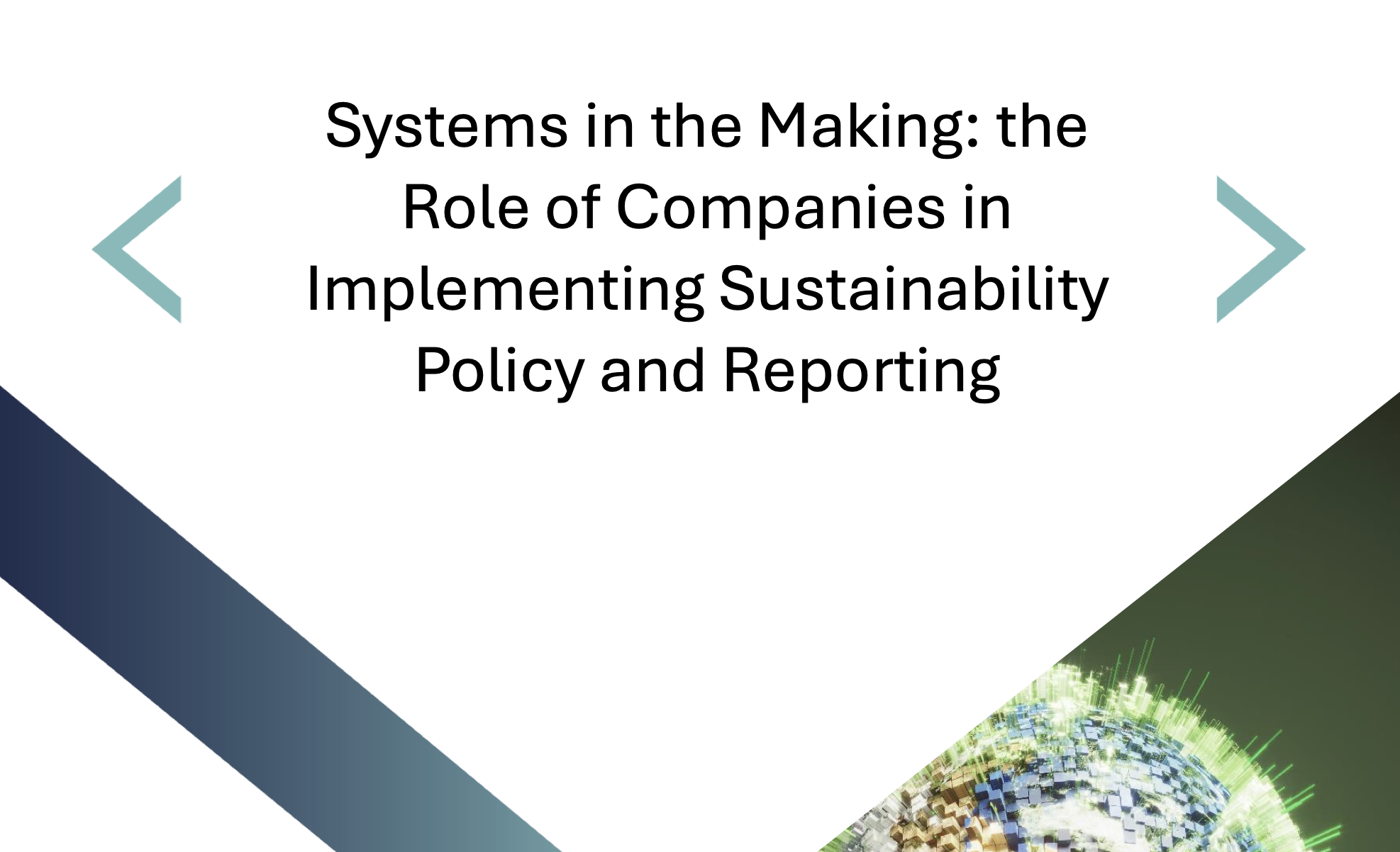Systems in the Making: the Role of Companies in Implementing Sustainability Policy and Reporting

This paper focuses on the implementation of corporate sustainability, or Environment, Social and Governance, reporting. The introduction from 2023 of mandatory reporting is a key milestone in sustainability.
Adopting a comparative case method, we identify as related case studies Materiality (in reporting), Transition (in corporate strategy), and Stewardship (in fund management). We compare these by applying the theory-led themes of system openness, the agency or power of coalitions in producing and acting upon reports, contests in the qualification of key data, and through business exchanges related to or enabled by sustainability reports.
Drawing on a two-year applied project, we elaborate upon policy, regulation, business and industrial markets, and business relationships. We find that Materiality is the most stable and well-framed system. It produces key outcomes in depicting a reporting company’s sustainability risks and opportunities. Transition is the most open, influenced by global and jurisdiction task forces, for example tasked with achieving net zero policy obligations.
Stewardship in the UK articulates a set of principles, which guide fund managers in engaging with investee companies. We conclude that sustainability policy is at the same time setting in progress the forming of three systems, corresponding to this paper’s three case studies. Each has its own development, function and sets of facts, though each is beginning to achieve its function through interactions and exchanges with the other two.



